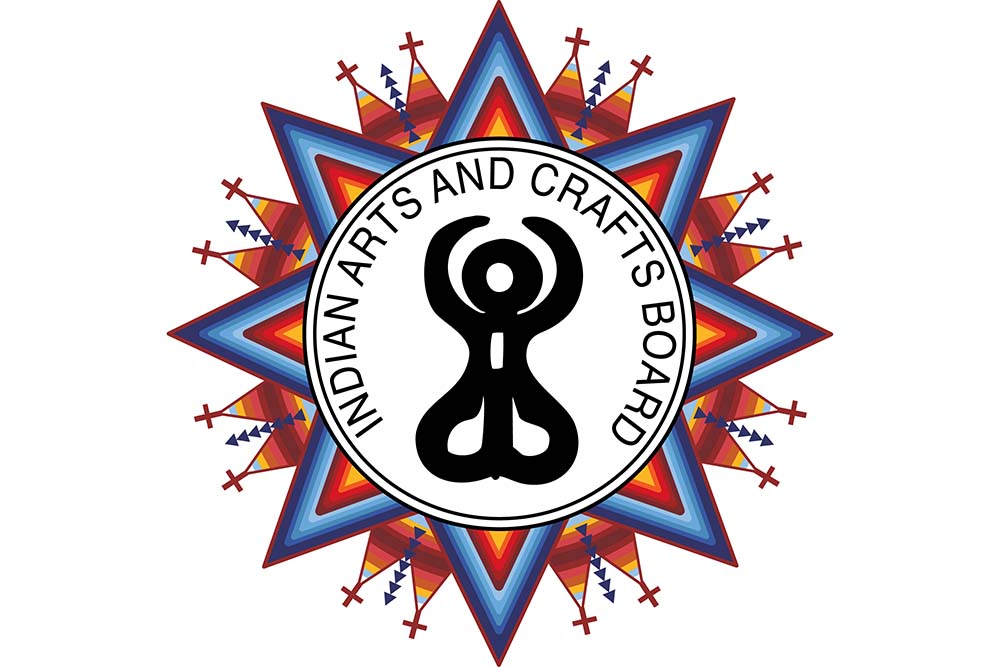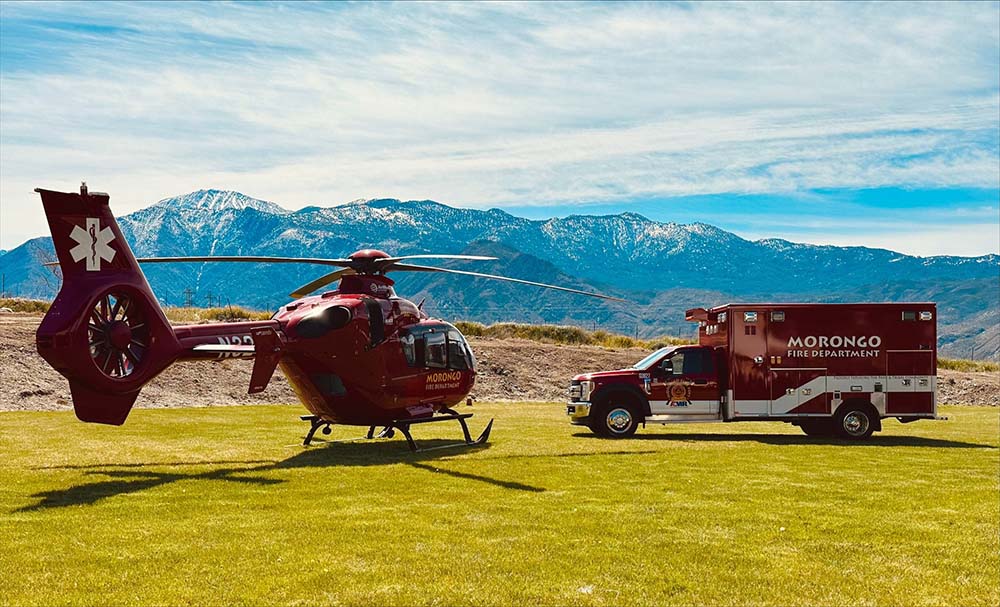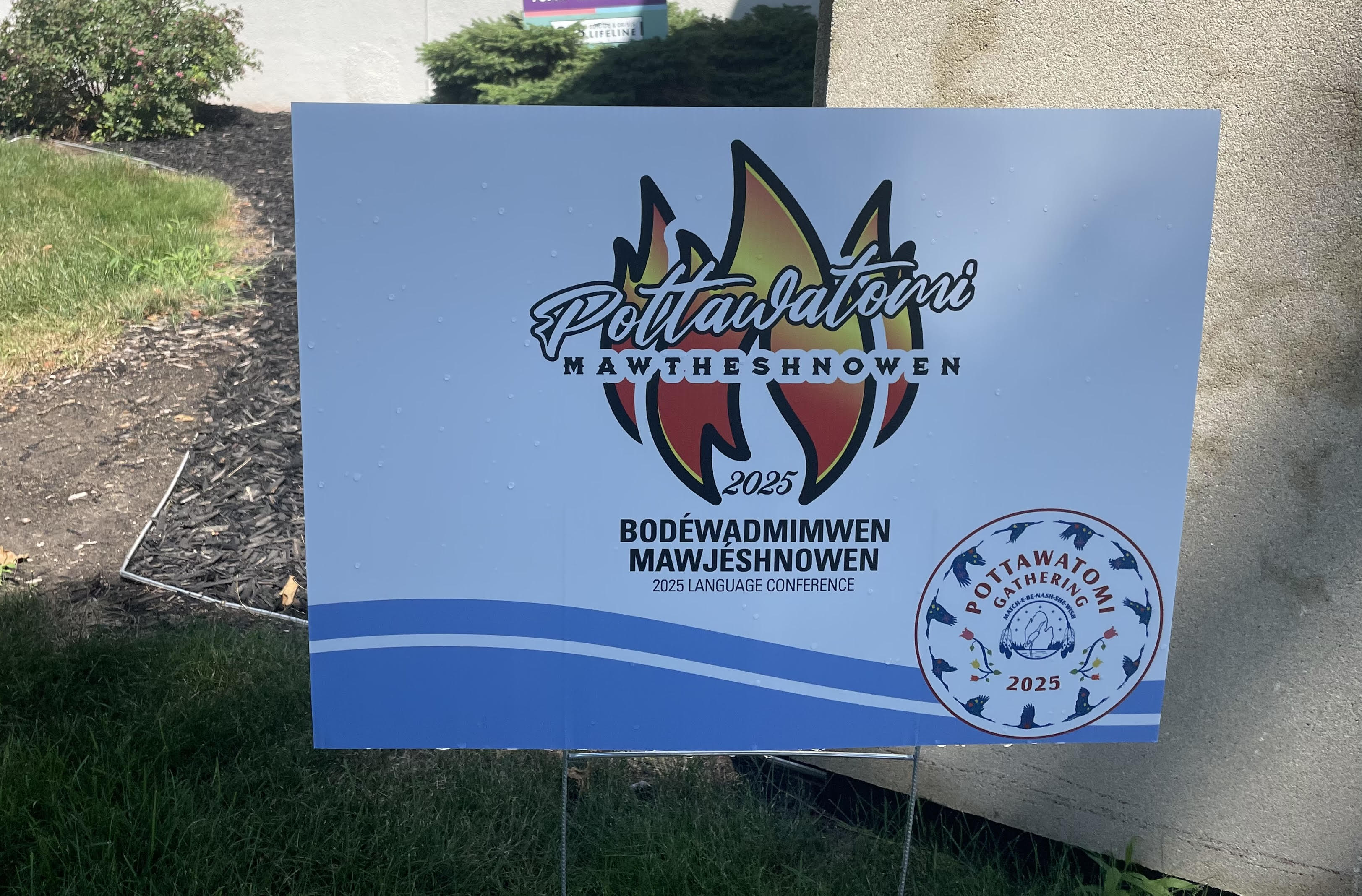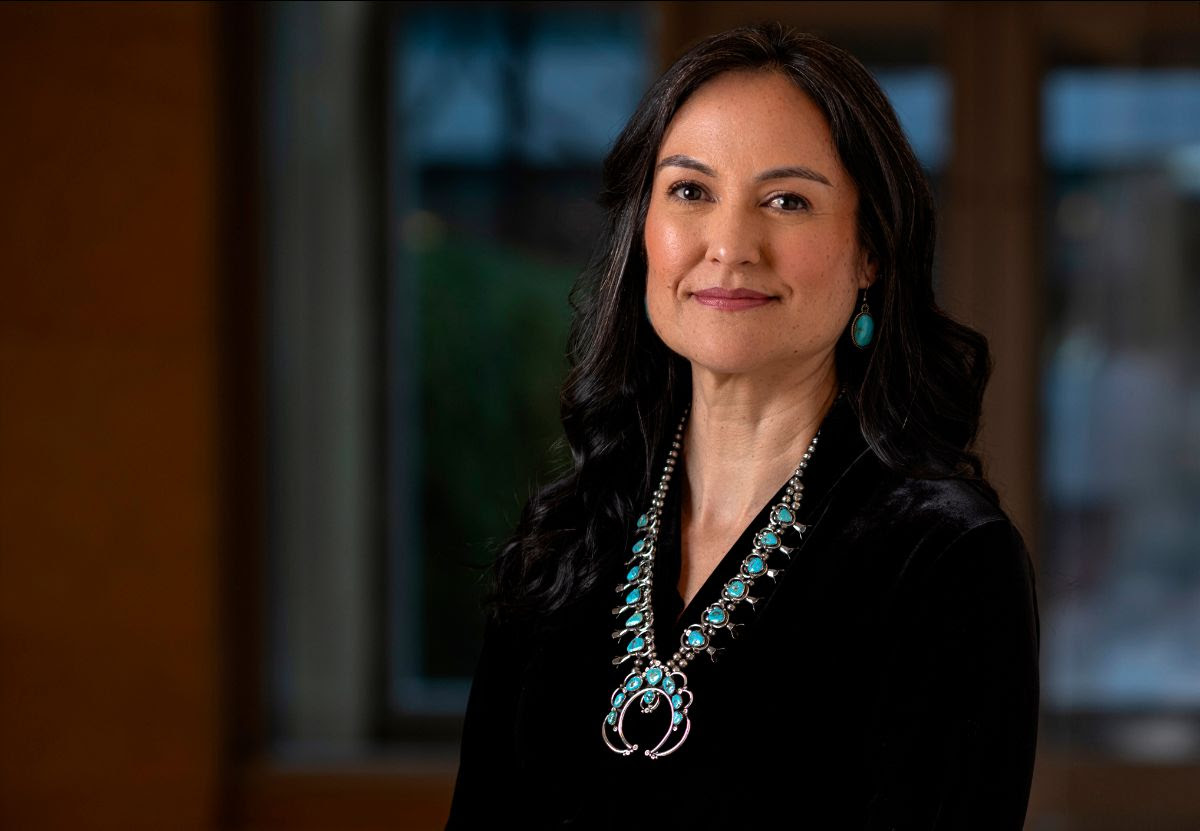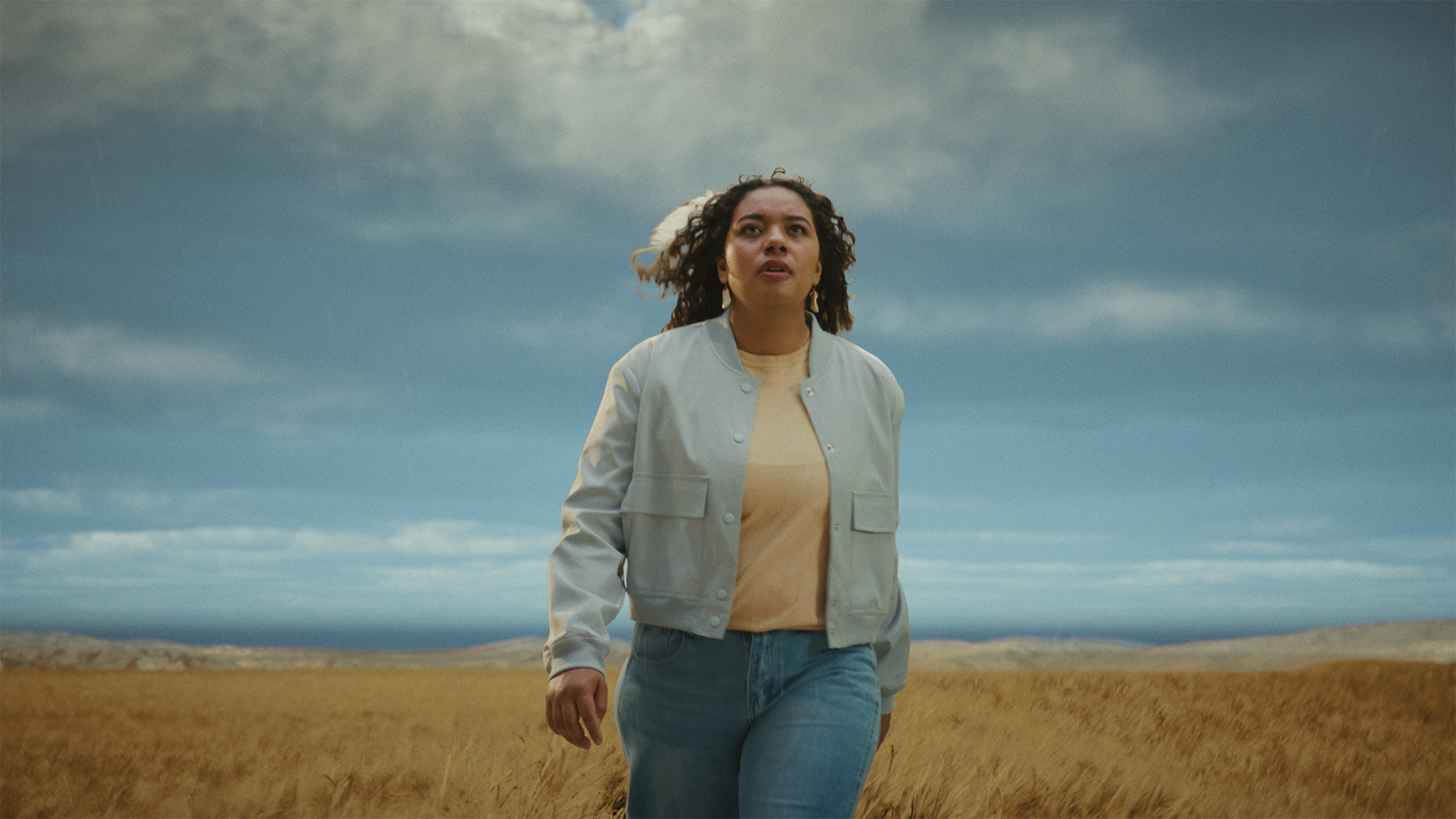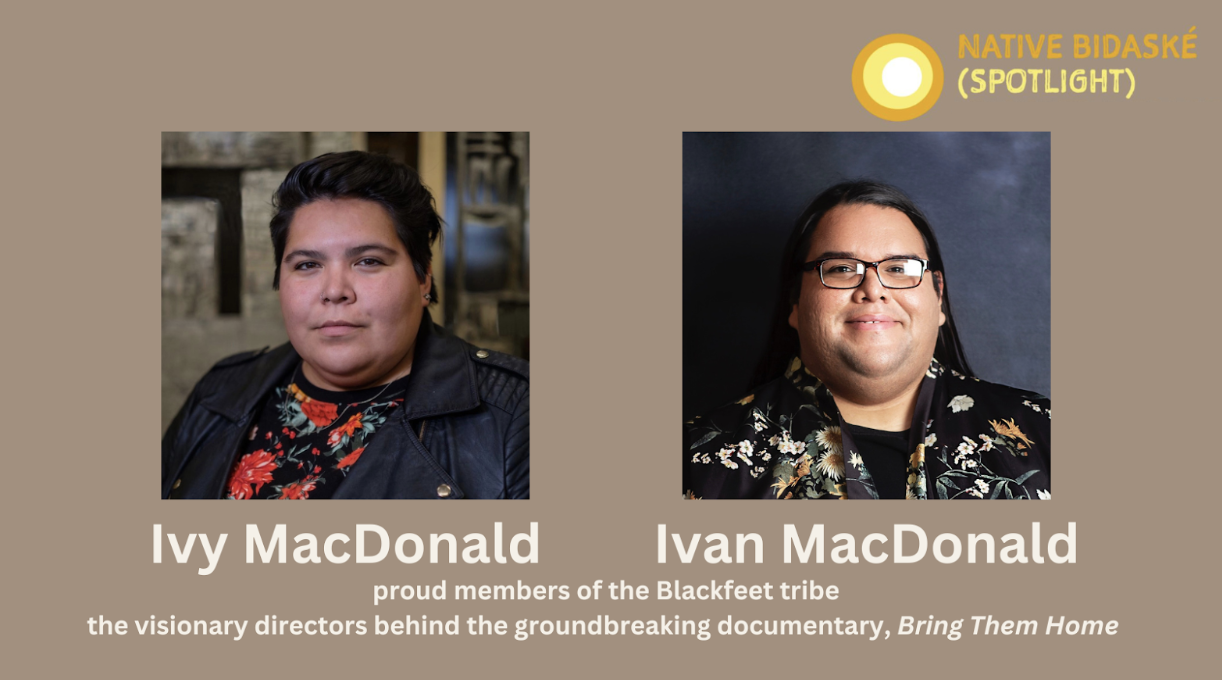
- Details
- By Native News Online Staff
Join us this Friday for a captivating episode of Native Bidaské with Ivy and Ivan MacDonald, the visionary directors behind the groundbreaking documentary “Bring Them Home.” This new feature film is executive produced and narrated by Lily Galdstone and is premiering at the Big Sky Documentary film festival on Feb 24, 2024.
Ivan MacDonald is an Emmy Award-winning filmmaker and proud member of the Blackfeet tribe. His most recent project, “Murder in Bighorn,” premiered at the 2023 Sundance Film Festival and aired nationally on Showtime. It was recently nominated for an Independent Spirit Award. MacDonald is currently directing and producing two feature-length documentaries.
“Bring Them Home” is about his tribe’s efforts to establish the first wild bison herd, in a reservation and is executive produced and narrated by Lily Gladstone. His other project, “When They Were Here,” is about the missing and murdered indigenous women and girls crisis within his community. When they were here, has received support from Sundance, IDA and ITVS. He is an inaugural fellow for the Netflix and Illuminative Producers Fellowship, and is also the inaugural recipient of the Hulu and Firelight Kindling Fund.
Ivy MacDonald is a trailblazing director and proud member of the Blackfeet tribe. Ivy graduated from the University of Montana in 2017 with a BFA in Digital Filmmaking. She has produced and directed work for ESPN and the ACLU and was a part of the Fourth World Media Fellow for Tracey Rector’s Indigenous Filmmaker Program. Currently, they are a part of the Firelight Media Documentary Lab.
“Bring Them Home”, a poignant feature documentary executive produced and narrated by the esteemed Lily Gladstone, sheds light on the Blackfeet tribe's courageous quest to reintroduce wild buffalo to their ancestral lands. Premiering at the Big Sky Documentary Film Festival on February 24th, this cinematic masterpiece captures the resilience and spirit of the Blackfeet people as they reclaim centuries-old traditions in the face of adversity. The 85-minute film chronicles a decades-long initiative by members of the Blackfoot Confederacy to bring wild buffalo (Blackfeet: iinnii) back to the Blackfeet Reservation. A thriving wild buffalo population would not only reconnect Blackfeet with a central part of their heritage, spirituality and identity but would provide economic opportunities and healing for the community. Along the way, however, the initiative faces obstacles from ranchers who see the buffalo as a threat to the cattle ranches that dominate the land and are a legacy of colonization.
Bring Them Home examines the deeply meaningful role that buffalo played in Blackfeet life prior to the arrival of settlers who nearly eradicated wild buffalo in an effort to eradicate the Blackfeet people. For Blackfeet, the buffalo are seen not only as fundamental to a healthy ecosystem but as spiritual relatives. Their removal from the land meant the loss of the Blackfeet way of life, the trauma of which still reverberates today.
Don't miss this insightful and engaging edition of Native Bidaské LIVE this Friday, February 16th, 2024, at 12 p.m. Noon ET. Watch this episode on Native News Online's Facebook, X (Twitter), or //www.youtube.com/@NativeNewsOnline/streams" style="text-decoration: none;">YouTube channel.
More Stories Like This
Native News Weekly (August 25, 2024): D.C. BriefsUS Presidents in Their Own Words Concerning American Indians
Native News Weekly (August 4, 2024): D.C. Briefs
Next on Native Bidaské: Empowering Native Youth Through Sport
Army Conducts Eighth Year of Disinterment and Return of Native American Children at Carlisle Barracks
Help us tell the stories that could save Native languages and food traditions
At a critical moment for Indian Country, Native News Online is embarking on our most ambitious reporting project yet: "Cultivating Culture," a three-year investigation into two forces shaping Native community survival—food sovereignty and language revitalization.
The devastating impact of COVID-19 accelerated the loss of Native elders and with them, irreplaceable cultural knowledge. Yet across tribal communities, innovative leaders are fighting back, reclaiming traditional food systems and breathing new life into Native languages. These aren't just cultural preservation efforts—they're powerful pathways to community health, healing, and resilience.
Our dedicated reporting team will spend three years documenting these stories through on-the-ground reporting in 18 tribal communities, producing over 200 in-depth stories, 18 podcast episodes, and multimedia content that amplifies Indigenous voices. We'll show policymakers, funders, and allies how cultural restoration directly impacts physical and mental wellness while celebrating successful models of sovereignty and self-determination.
This isn't corporate media parachuting into Indian Country for a quick story. This is sustained, relationship-based journalism by Native reporters who understand these communities. It's "Warrior Journalism"—fearless reporting that serves the 5.5 million readers who depend on us for news that mainstream media often ignores.
We need your help right now. While we've secured partial funding, we're still $450,000 short of our three-year budget. Our immediate goal is $25,000 this month to keep this critical work moving forward—funding reporter salaries, travel to remote communities, photography, and the deep reporting these stories deserve.
Every dollar directly supports Indigenous journalists telling Indigenous stories. Whether it's $5 or $50, your contribution ensures these vital narratives of resilience, innovation, and hope don't disappear into silence.
 The stakes couldn't be higher. Native languages are being lost at an alarming rate. Food insecurity plagues many tribal communities. But solutions are emerging, and these stories need to be told.
The stakes couldn't be higher. Native languages are being lost at an alarming rate. Food insecurity plagues many tribal communities. But solutions are emerging, and these stories need to be told.
Support independent Native journalism. Fund the stories that matter.
Levi Rickert (Potawatomi), Editor & Publisher





